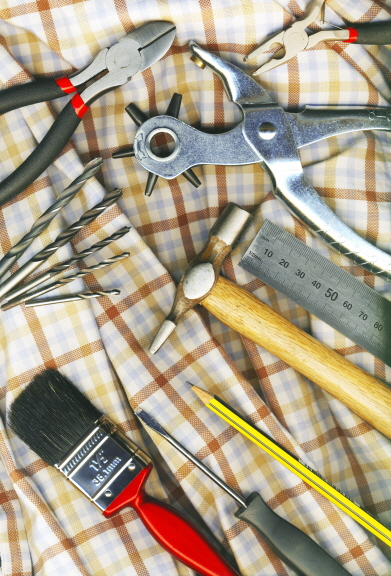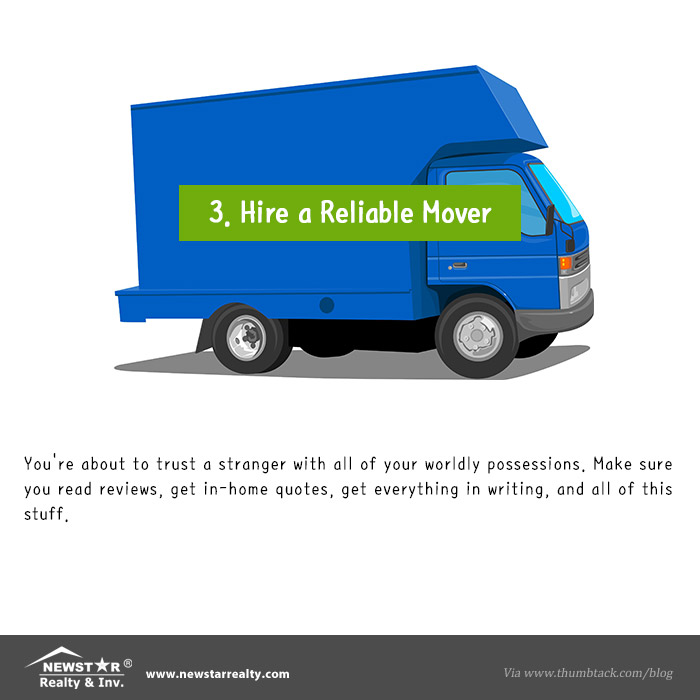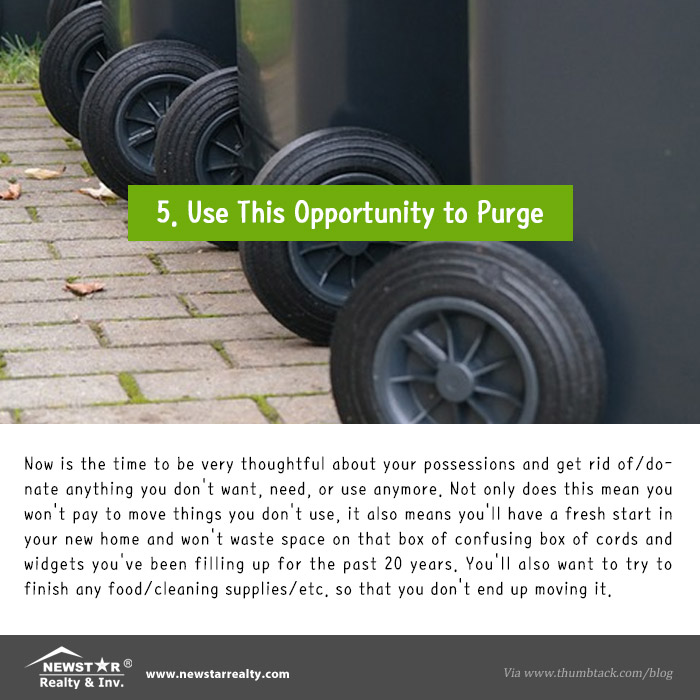Tag Archives: home
How to Ask ‘Why’ the Right Way
This simple question could become your business’ best frenemy. Teach agents how to use it wisely.

“Why?”
It’s a preschooler’s favorite word and your agents’ best friend and worst enemy, or frenemy, when it comes to actually finding out why a potential buyer is looking for a home. A good agent will want to know why a client wants to buy or sell; a great agent will want to understand the reason behind the desire. So just asking why is a good start, but without digging deeper, it can come across as more of a business question than a desire to truly understand what the customer is thinking and experiencing. That’s what makes it dangerous. To truly understand a customer’s mission, agents must dig deeper.
There are two key ways you as a broker can teach agents to dig deeper. First, make sure your salespeople are looking to actually understand clients’ problems, not just sell them a solution.
In order to do this, they have to connect with customers on a personal level. Ask your agents to think about how different it feels when a doctor is sincerely interested in you, rather than just trying to get through the appointment so they can move on to the next patient. When a doctor takes the time, asks the right questions, and really listens to make sure they understand, you have confidence in them. When they take a sincere interest in you, you trust them and will follow their advice and leadership.
Another thought exercise to help agents understand this concept is to ask them about a friend or family member who is really good at helping them work through problems they’re trying to solve or a decision they’re trying to make. Chances are the friend or family member is truly interested in helping find the right solution. They become a partner in understanding, solving, and resolving issues. That’s the kind of connection agents can create with customers by seeking to understand their problem rather than seeking to sell a solution.
Once you’ve enabled your agents to see the difference between knowing and understanding their clients’ issues, you can give them the tools they need to act on it. Show them that “how,” “when,” and “what” questions will help them uncover the deeper “why” of any situation.
A depressed person doesn’t walk into a counselor’s office knowing why they are depressed. They’re there because they haven’t figured it out. So a counselor might ask, “When was the last time you were depressed?” Then they might ask what happened or what they were doing before they felt depressed. Similarly, agents may have to ask a series of “what” and “how” questions to uncover the why. They might ask what a customer likes or doesn’t like about their current situation or the options they’ve seen so far. From there, agents can summarize and recite the answers back to them, saying something like, “So it sounds like you’re looking for X, Y, and Z. Suppose you had that today. How would that improve your life?”
Agents who are skeptical of this approach might need an example to help them understand how powerful it can be when they help clients discover a deeper truth they didn’t even know about themselves. Let’s say a salesperson asks why a potential buyer wants a bigger backyard, the customer might say they want a pool. After asking why having a pool is important to them, the agent may find out that the family wants to have friends over so they can entertain and have fun at home. Simple enough, right? In times like these, agents have to go through a side door to find out the deeper answer and discover what’s truly important to their clients. For example, they might ask one more question: “How do you feel it will affect your kids’ lives to have a pool?” From here, customers may reveal they didn’t grow up with a house or atmosphere that was accommodating to friends and they want their kids to have a better experience than they did. This gives the agent a much greater understanding of what the consequences are if the customer doesn’t make a change. It may be too much pressure on the client to discover the deeper truths, and it’s an agent’s job to uncover it for them.
This approach requires staying focused on finding out the full story to truly understand the client’s mission to improve their lives. This information is one of the most powerful sales tools an agent has. But to discover the why, agents must do more than just ask why.
9 Great Spots for GLAMPING in CA
Top 5 Preventive Maintenance Tasks for Landlords

A landlord needs to stay abreast of many maintenance issues to keep a unit comfortable and running efficiently. Common preventive maintenance tasks include:
- Servicing the heating/cooling system
- Plumbing and drain maintenance / fixing leaks
- Painting
- Appliance repair/replacement
- Maintaining landscape structures
- Water management
- Fireplace and chimney cleaning
In the interests of discretion and efficiency, you may try to limit the number of visits to an occupied rental unit and to get as much done as possible while you’re there. This may mean that some jobs don’t get done. When you can’t get to everything on your maintenance checklist, here are five tasks you shouldn’t ignore.
1. Gutter Maintenance
Water runoff around the foundation of your house can cause serious problems. It can undermine the foundation and cause settling, and it can create the moist soil conditions that attract termites. A well-designed gutter system directs runoff from the roof safely away from the foundation, but not if the gutters are blocked with debris.
A single day devoted to gutter maintenance is worth your time and money.
You can do the job yourself, or hire the job out.
You’ll prevent snow and heavy winter rains from backing up and forming dangerous ice dams or icicles, and you’ll avoid damage to the siding and foundation from overflow from the gutters.
Gutter Guards Help
Most gutter guards can keep leaves and large twigs out of your gutters. Depending on the type you have, you still have to inspect the gutters for silt, conifer needles, and other smaller debris. Pay special attention to the downspout openings where silt and debris tend to accumulate.
2. Check the Dryer
Dryers cause approximately 2,900 residential fires each year, and 34% of them are due to poor maintenance. The main culprit is lint buildup, and that most often occurs in the vent ducts.
Here’s what to do:
- Turn on the dryer.
- Feel for a steady stream of warm air coming from the outdoor vent opening.
- Note whether the flap is moving. It should be.
If the flap isn’t moving, take the following steps:
- Remove the vent cap.
- Vacuum out the vent.
- Disconnect the vent from the dryer.
- Clean out the lint you find there.
Community Association Underwriters of America recommends getting the dryer vents cleaned professionally every two or three years.
Proper dryer maintenance helps prevents fires and ensures efficient operation. Clothes dry more quickly, and that saves money for whoever pays the utility bill.
3. Service the Septic System
A midnight call from a distressed tenant may be annoying, but that’s the least of your problems in a septic crisis. Visualize the cleanup necessitated by an overflowing toilet. Septic experts recommend pumping the tank every five years, but many homeowners let it go for longer than that. As a landlord with limited knowledge and control of what goes into the toilets and drains, you shouldn’t.
It isn’t just a buildup of sludge at the bottom of the tank that you have to worry about. The scum layer at the top can clog your drain field if it’s full of grease and other insoluble materials. Regular pumping helps control this layer by reestablishing a healthy digestive balance in the tank.
Don’t Forget the Pump Alarm
If your tank has a transfer pump, instruct your tenants to keep a watchful eye on the visual alarm. Prompt response to a signal can also avert a backup and expensive cleanup. The pump may need servicing, but the problem is often something as simple as a tripped breaker.
4. HVAC Maintenance
HVAC service experts recommend changing heating and cooling filters every 6 to 12 months. This is important for air quality and for the performance of the heating/cooling unit. Energy.gov says that filter maintenance can lower the energy bill by 5% to 15%.
It’s better to replace filters than it is to clean them, and filters aren’t very expensive. A furnace filter costs from $4 to $20, depending on model and size, and a general purpose air filter costs about the same. It’s an extra expense, but you’ll probably realize the savings in improved efficiency.
5. Inspect and Clean the Chimney and Fireplace
If your tenants use the fireplace, you should have the chimney inspected once a year. Soot deposits should be removed if they are thicker than 1/8 inch.
Fireplace maintenance is a safety issue; creosote buildup increases the likelihood that hot embers will fly from the chimney during a fire. It’s also an energy issue because a clean chimney produces a hotter fire. Finally, it’s a maintenance issue. Sooty air blackens the stones around the hearth and dulls the walls in the fireplace room, and there is less blowback if the chimney is clean.
Now that you know the five basic preventive maintenance tasks, you have a game plan that’s easy to carry out. And you can feel confident that you’re maintaining your property.
Credit to Chris Deziel
Chris has owned and managed 4 rental properties in Santa Cruz, CA, and Salida, CO. He is a DIY handyman expert for popular sites like Pro Referral.

Helping Los Angeles Find Where to Live
10 Tips for a Stress-Free Move
The Safety Benefit of Smart Homes

The latest technology doesn’t just make properties more marketable. Learn how to use these smart devices to thwart danger when you’re out in the field.
Sure, smart-home devices can make a property more desirable, but have you considered how they can keep you safe as a listing agent or when showing homes to buyers? Open houses and vacant properties are the top places where real estate professionals report encountering threatening situations, according to the National Association of REALTORS®’ 2016 Member Safety Report. Tara Christianson, technology and training director at Century 21 Redwood Realty in Arlington, Va., recently hosted a webinar and offered tips on how smart devices can protect your client’s property and yourself.
- Smart door locks and keyless entry systems can help keep a vacant property more secure. Products such as Schlage’s Bluetooth-enabled locks not only allow you to control access to the property but also can record traffic in the home. You can create e-keys for contractors, assistants, and your real estate team members.
- Video doorbells, such as SkyBell, contain video cameras so you can talk to whoever is on the other side of the door without even being on the premises. The video streams to your phone, and some products even allow you to take a photo of the person at the door to send to authorities if you become alarmed.
- Motion sensors are helpful for both vacant homes and new construction — both properties squatters tend to target. Fibaro, for example, sends activity alerts to your phone when there is movement in the home. You can set alerts to the times you expect the home to be empty. “Maybe someone’s in the home that you need to be aware of so you know to bring someone with you when you arrive,” Christianson says.
- Use devices that monitor doors and windows so you can tell when they’ve been left open. This will likewise alert you to suspicious activity at a listing, and these devices are useful for sellers as well so they can monitor their homes on days when they’re being shown.
- Smart lighting and entertainment systems don’t just help you set the ambiance for a showing. Systems like Hue and Lifx allow you to set on and off times for lighting systems, making it look like a listing is continually occupied.
Do Smart Homes Invite Threats?
Such technology can make a home more vulnerable to hackers, Christianson admits, but there are steps you can take to mitigate the risk. You should never use open Wi-Fi networks when operating smart devices. If your client’s network is less secure, you can protect your own device with a virtual private network, which creates an encrypted connection when using your client’s Wi-Fi. But if you’re going to use a device in a seller’s home, you should always ask them how protected their network is. Do they have a password that’s hard to guess, or are they using a simple code like “123” or “password”?
Give Clients Smart Advice
Steer clients interested in smart devices toward well-known vendors such as Nest, which is backed by Google. “Sometimes, products or companies sound great, but then the vendor stops updating their devices or shuts down without notice,” Christianson says. “You don’t want your client to be stuck with something that suddenly stops working.”
Tell your sellers to disclose what smart devices they have in their homes to buyers up front. That will absolve them of any responsibility in case a buyer has a complaint about being monitored during a showing. “You don’t want conversations with buyers caught on tape without their knowledge,” Christianson says. Let informed buyers make their own decisions about whether they want to even enter rooms that have active recording devices.
Graham Wood is a senior editor for REALTOR® Magazine.

When different is BETTER
How to Deal with a Deadbeat Landlord

What do used car salesmen, lawyers, and landlords all have in common? … People in all three professions are often the butt of jokes about—shall we say—low ethics.
Here are some jokes I’ve heard recently:
- What’s the difference between a good lawyer and a bad lawyer? … A bad lawyer makes your case drag on for years. A good lawyer makes it last even longer.
- I saw the most beautiful cars in the window of a dealership. A salesman came out and said, “Come on in. They’re bigger than ever, and they last a lifetime!” … Later I discovered he was talking about the payments.
- What do landlords do for fun? … How would I know? I haven’t seen mine in the past eight months.
Those jokes you hear are often unfair, but what makes them funny is the kernel of truth associated with them. And unfortunately for all the great, honest, just-trying-to-make-a-living landlords out there, the deadbeat landlord gives all of us a bad name.
So, just to show that all landlords are not untrustworthy villains, I would like to do my part by helping all the tenants out there who are stuck with a deadbeat landlord, meaning a landlord who is good at collecting the rent check and nothing much else.
There’s a Problem, and Your Deadbeat Landlord Has Disappeared
You won’t know you have a deadbeat landlord until a problem arises. The most common problem tenants have are maintenance ones. So what should you do when you notify your landlord that:
- The heat went out during the winter (or the AC in the summer),
- A window won’t lock,
- Bugs are running around your kitchen,
- Or any one of a number of possible problems
…and your landlord is M.I.A.?
First of all, here’s what you shouldn’t do: You should not withhold rent. Doing so could get you evicted.
Some tenants think that if the rental unit has a problem that means they don’t have to pay rent. If you stop paying rent, you will probably hear from the landlord—but not to fix the problem. It will be to evict you.
You do not have to live with a problem, either. There’s a concept in the law called the “implied warranty of habitability,” meaning that your landlord has to keep the place livable. Note that livable pertains to necessities, such as running water, not because you can’t bear the olive green walls.
The Appropriate Steps
Here’s what you should do if there’s a problem that needs fixing:
1. Make Contact (and document it)
Contact your landlord as soon as you notice the problem. A good landlord will respond right away, and will take care of the issue. But, since you have read this far, you probably have a deadbeat landlord, and you are being ignored. So go to step 2.
2. Send a Certified Letter
Send your landlord a certified letter if they don’t respond to your first request. State the nature of the problem, and the date it started happening. You’ll need to have this documented in case you need to take further action, so make a copy for yourself as well.
3. Wait
Wait to see whether your landlord responds. Tenants typically need to give their landlord 30 days to fix a problem that is not an emergency. But emergencies need to be addressed immediately.
4. Allow Access
If your landlord responds, let them (or their representative) in to make the repair.
5. Try to “Repair and Deduct”
If your deadbeat landlord still ignores the situation, there’s more you can do. Try the repair-and-deduct method if your jurisdiction allows this. You would arrange for a repairman to fix the problem, and you would then deduct the cost from the rent. Provide your landlord with a receipt.
6. Call the Authorities
Call your local health or building inspector. Someone will inspect, and that could force your deadbeat landlord to act.
7. Withhold Rent
I know I said not to withhold rent earlier. But there might be an instance where you can. Find out whether your state allows this, and if so, under what conditions. What you’d typically need to do would be to set up an escrow account, and put the rent in it. Let your landlord know that you’re putting the rent payment in an escrow account and will release the funds after the repair is made.
8. Break the Lease
If your rental is truly uninhabitable, and your deadbeat landlord won’t do anything to fix it, you might be able to break the lease. But first check with an attorney or legal aid for your area to see whether you have a case.
You Might Not Have a Deadbeat Landlord
Although you are entitled to have your landlord fix major problems, such as no heat, no running water, and a pest infestation, you are not necessarily entitled to have nonessential problems fixed, such as a leaky sink. Read your lease to see whether it addresses minor repairs, how those are handled, and whose responsibility they are. You might need to change out that lightbulb yourself.
Also consider that if you caused the problem, you need to fix it. If your hair clogged up the sink, you need to fix that since you caused the problem. If the landlord fixes a problem you created, they can deduct the cost from your security deposit.
Conclusion
You don’t need to put up with a deadbeat landlord. Try the steps listed here. If you have a deadbeat landlord story of your own, share it in the comments section, along with what you did to solve the problem!
Credit to Laura Agadoni
Laura Agadoni is a landlord and journalist whose articles appear in various publications such as Trulia, The Houston Chronicle, The Motley Fool, SFGate, Zacks, The Penny Hoarder and azcentral.


























